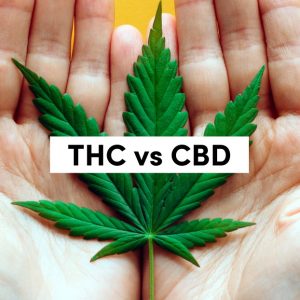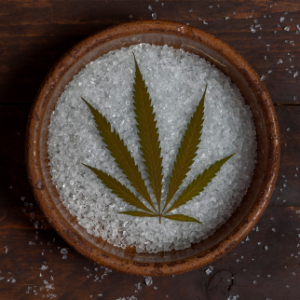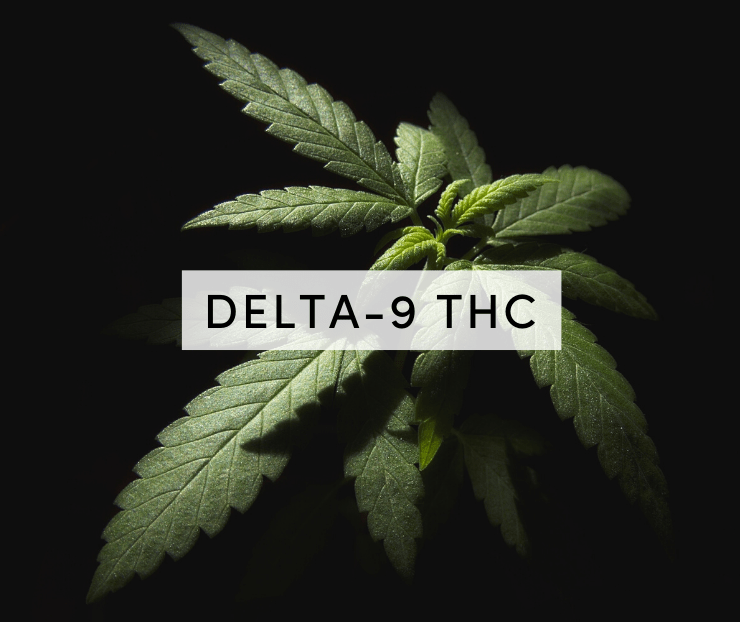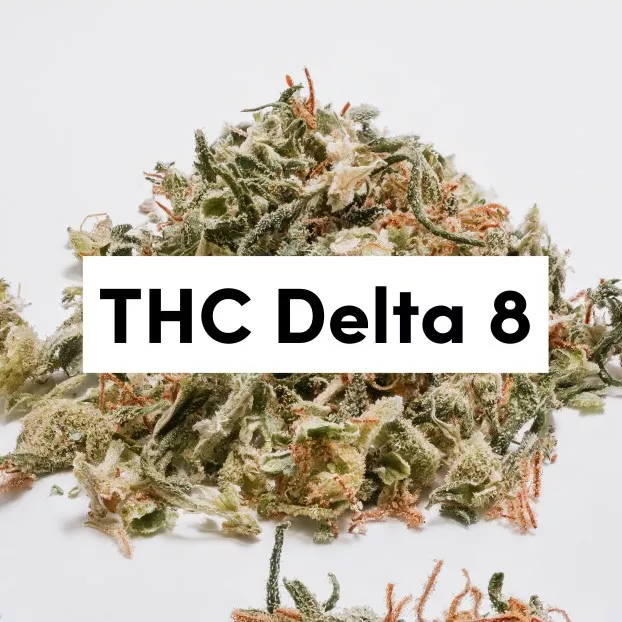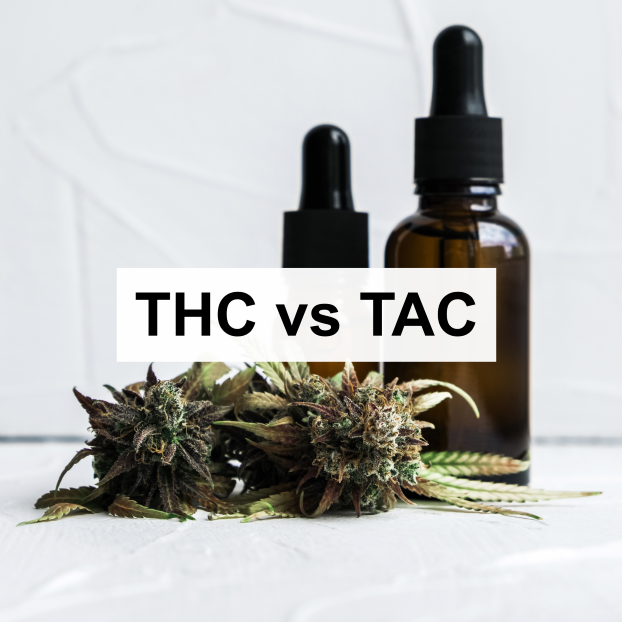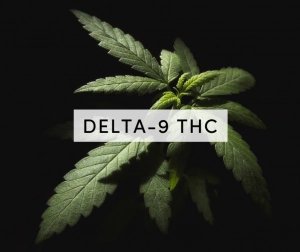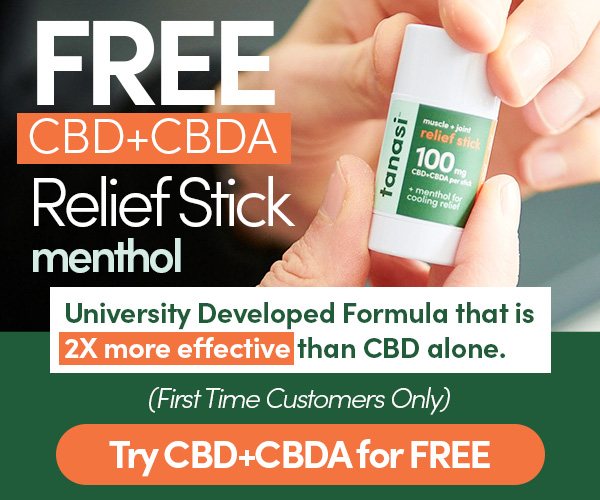THC Vs CBD: Similarities And Differences
Posted on September 1st, 2022
Choosing between THC vs CBD? Then you need to understand these terms! CBD (cannabidiol) and THC (tetrahydrocannabinol) are naturally occurring substances. They form in different plant species from the Cannabis genus. These compounds are distinct and produce different effects when you consume them.
In 2018, the government signed the Farm Bill into law. This law removed hemp (one of the varieties of the Cannabis Sativa plant) from the controlled substances list. After, it was legal to grow and ingest any cannabis variety containing THC at low levels (0.3% or less).
Keep reading to find out everything you need to know about THC Vs CBD. That way, you can make an informed decision when choosing between these substances.
Clarifying The Terms 
There is a lot of misinformation and misconceptions when it comes to CBD and THC. But here’s the deal.
THC (Delta-9-tetrahydrocannabinol) is a naturally occurring compound in cannabis. It produces the “high” associated with marijuana use.
You also find CBD (cannabidiol) in cannabis plants. It won’t result in psychoactive effects. Instead, it may produce sleepiness or relaxation. It also seems to have anti-inflammatory and antioxidant properties.
THC Vs CBD: What Is THC?
THC, which also goes by the name of Delta-9-tetrahydrocannabinol, is the primary psychoactive ingredient present in cannabis. The NIDA (National Institute on Drug Abuse) states that THC activates the reward system in your brain by signaling the release of dopamine.
Dopamine is one of the neurotransmitters that performs a vital role in pleasure and mood. When THC triggers dopamine to release (at a higher-than-normal rate), it causes the user of the substance to experience euphoric feelings. Smoking marijuana was once the most common way to administer THC. Today, this compound is also available in oils, edibles, and capsules.
THC Vs CBD: What Is CBD?
CBD, also known as cannabidiol, is now also one of the most popular chemical compounds that were detected in cannabis. Discovered first during the 1940s, it is now commonly known as one of the natural alternative treatments for various conditions. CBD is derived from both marijuana and hemp. CBD that is hemp-derived can still contain THC in trace amounts, while CBD derived from marijuana can contain more.
THC vs CBD: How Are They Similar?
Both THC and CBD have a molecular structure that is exactly the same. This includes 30 hydrogen atoms, 21 carbon atoms, and 2 oxygen atoms. But these atoms have a slight difference in their arrangements, and this is why they affect the human body in different ways.
THC and CBD are also chemically similar when compared to the endocannabinoids in the human body. This is what allows these compounds to interact with the cannabinoid receptors. These interactions are what cause neurotransmitters to release in the brain. The neurotransmitters are the chemicals that play a role in relaying messages that occur between the cells and also play a role in immune function, pain, sleep, stress, and many more.
THC Vs CBD: How Are They Different?
CBD and THC both affect the “endocannabinoid system”, which is the system in the human body that is responsible for the maintenance of homeostasis. Scientists are still in the process of trying to decipher how these complex systems work, but they have found that it is linked to processes that include appetite, mood, fertility, sleep, and memory. While CBD and THC may share similarities, it is important to know about the main differences when comparing these compounds.
THC
• Sourced from marijuana
• Psychoactive (which means it causes a high)
CBD
• Sourced mainly from hemp
• Non-psychoactive (which means it doesn’t cause a high)
What Is Legal?
Even though CBD is not classified as a substance that is psychoactive, it is still not legal in all states. For CBD to be regarded as “legal” in a state, it has to be approved legal at state and federal levels.
Even though the Farm Bill allows you to produce cannabis plants (provided the THC concentration is 0.3% or lower), every state still has the right to decide its own rules.
States That Legalize CBD
Regardless of the fact that CBD does not have the potential to cause a “high” some states have not legalized this substance. Even though certain states do not have any restrictions on CBD, there are other states that have only legalized CBD for “medicinal purposes”. There are also a few states that regulate CBD according to whether it was sourced from marijuana or hemp. Others have still not legalized CBD at all.
Since the laws are known to change frequently, it is recommended that anyone that is interested in using or buying CBD (even when it doesn’t contain THC) should first refer to the laws applicable to their state. The National Conference of State Legislatures is one of the best resources to find this information on its State Medical Cannabis Laws page.
Which One Should You Choose? 
When it comes to choosing between THC and CBD products, it will often depend on what type of effects the user is attempting to achieve. For example, if you are looking for a product to promote sleep or reduce stress, CBD might provide the benefits you are looking for without having to worry about the adverse effects linked with THC. On the other hand, THC may be the best option for conditions or symptoms where this substance has already demonstrated advantages, such as poor appetite or tremors.
The Entourage Effect
Some of the research has suggested that “potential” therapeutic effects that can be derived from CBD and THC are usually greater when these compounds are taken simultaneously (at the same time). This is something that is more commonly referred to as the “entourage effect“.
Taking THC and CBD together may also assist in reducing a few of the negative effects linked to THC. For instance, one of the studies conducted by researchers has suggested that CBD might decrease cognitive effects that are negatively related to consistent cannabis use.
For instance, individuals that are using cannabis, especially when it contains high THC levels, are at greater risk when it comes to experiencing the most common psychiatric symptoms including psychosis, anxiety, and paranoia. However, a few studies have discovered that CBD might help to mitigate some of these effects.
One of the studies discovered that CBD assisted in blocking a few of the “potential” side effects caused by THC. The authors linked to this study have suggested that these findings may have implications of importance when it comes to using cannabis products. Individuals that are susceptible to side effects that they don’t want to experience, might still be able to obtain the health benefits (potential) by trying out products that contain a low THC content, but a high CBD content.
Yet it is still very important to keep in mind that THC and CBD work in various brain areas, and scientists are still working on fully understanding the overall effects that each cannabinoid has alone or when they are combined.
Takeaways
THC and CBD both have potential medical benefits. They are also both regarded as safe, yet it is still important to take into consideration the possible interactions and side effects when used with other medications. This is why it is recommended to consult with a CBD clinician or doctor before using one of these products or combining them.
https://www.medicalnewstoday.com/articles/325871#where-they-come-from
https://www.healthline.com/health/cbd-vs-thc#chemical-structure
https://www.verywellmind.com/cbd-vs-thc-differences-benefits-side-effects-legality-5071416

